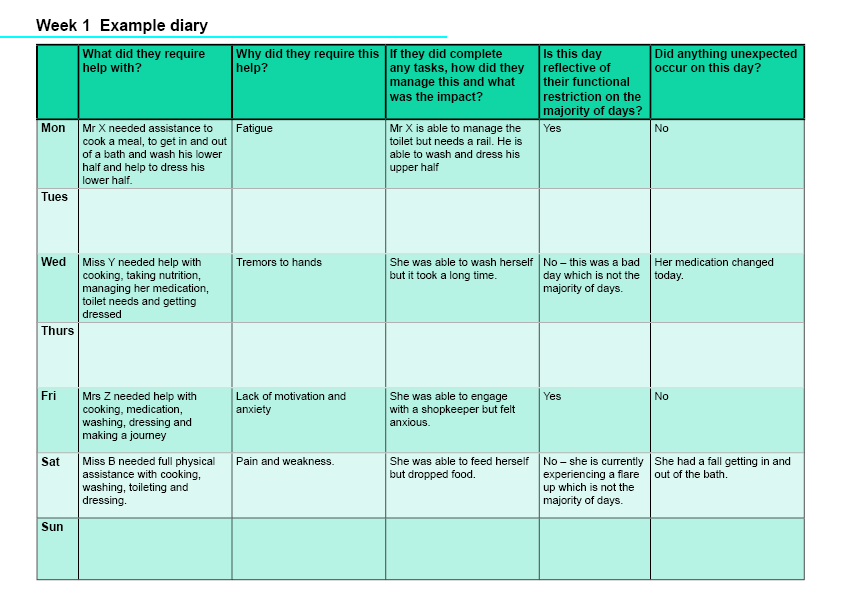Guides
Easy Read Guides
Carer's Diary Template
NEW! PIP Carer’s Diary
Please note the definition of a carer for the purpose of completing this form can be anyone who cares for a close family member, friend, or relative but is not a paid professional carer.
As a carer for someone who requires extra assistance and support – a family member, friend or relative, for example - you are uniquely positioned to provide the Department for Communities (DfC) and Capita with valuable evidence that can be used to support an individual’s Personal Independence Payment (PIP) application.
The information that you can provide can go a long way in helping to build a bigger picture of how the person you care for is impacted as a result of living with a condition or disability. This will help Capita’s assessors to better understand how their daily life is affected.
The Carer’s Diary has been developed with input from Carers NI and designed with input from Capita’s Clinical Excellence team.
It is recommended that you personalise the diary to reflect your observations and knowledge of the person that you care for with respect to their function and mobility and any changes in how these are impacted because of their condition and/or disability from one day to the next. This may include changes from morning to evening and differences between what you consider to be a ‘better’ and ‘worse’ day in terms of their functional ability.
To help the Capita assessors gain insight into how the person’s daily life is impacted, we recommend that the information you provide is detailed over a 2-4 week period leading up to the assessment date. This timeframe will give the assessors a more accurate picture of the impact on the individual. (Historic information relating to medical conditions should be provided in the main PIP application form that is returned to the DfC).
Should you wish to learn more about the types of evidence that should be provided when applying for PIP, additional information can be found in section one of the PIP Assessment Guide.
Carer's Diary
Click here to download the Carer's Diary template

Videos
Department for Communities Videos
The DfC have produced a series of videos to help explain the key stages of the PIP journey.
Is PIP for you or someone you know? (Britsh Sign Language)
Claiming PIP (British Sign Language)
Providing information to support your claim (British Sign Language)
PIP assessment - what to expect? (British Sign Language)
Is PIP for you or someone you know? (Irish Sign Language)
Claiming PIP (Irish Sign Language)
Providing information to support your claim (Irish Sign Language)
PIP assessment - what to expect? (Irish Sign Language)
What to expect at a Face to Face assessment


